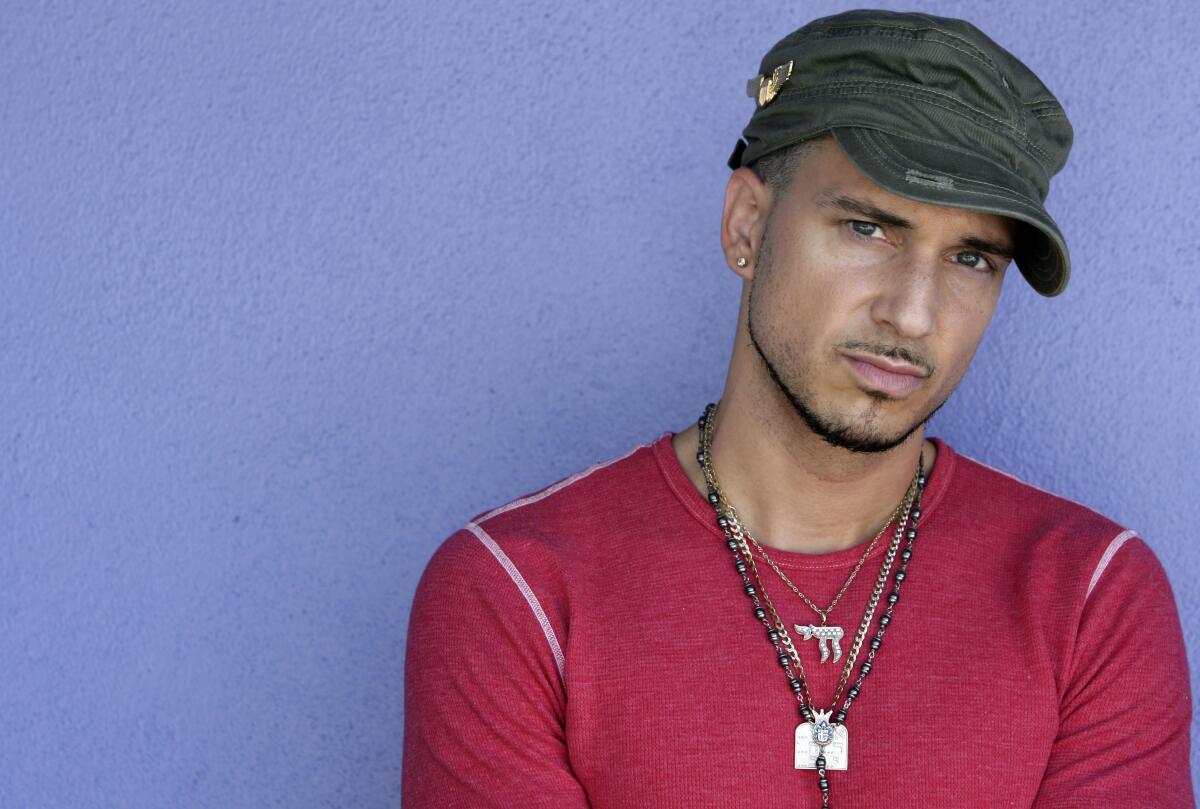How Ari Gold broke barriers for LGBTQ musical artists

- Share via
I lost another friend on Sunday.
It’s been a heartbreaking 2021 theme — losing friends.
It started with NBA writer Sekou Smith on Jan. 26, on the anniversary of Kobe Bryant’s death. On Super Bowl Sunday it was the baseball writer Pedro Gomez. And on Valentine’s Day, singer Ari Gold, after a battle with leukemia.
Yeah, I know, “Entourage” fans, I know. But my Ari was first — something he reminded me of often. Something he enjoyed being in general.
In 2004 his video for the song “Wave of You”— a tribute to the photographer Herb Ritts, who died of HIV-related complications in 2002 — became the first by a LGBTQ artist, who was out, to premiere on Logo TV.
Ari was a groundbreaker, helping to pave a path for mainstream LGBTQ artists at a time when deciding to come out was considered career suicide.
It’s hard for some to remember that time, with artists like Frank Ocean and Lil Nax X now selling millions of records and collecting Grammys, but the post-disco music industry didn’t exactly roll out the red carpet for openly queer artists.
At the start of their careers, musicians such as Elton John, George Michael and Boy George were coy about their sexuality, if not flat-out closeted. According to his good friend Patti LaBelle, the great Luther Vandross died in 2005 without coming out; she said “it was hard for him.” It was hard for many of his LGBTQ fans as well, as we were left to wonder if his heart broke like ours in his love songs.
Ari began as a singer when he was just 5 years old, landing a lead role on a CBS children’s album, “Pot Belly Bear: Songs and Stories,” which went platinum, among other childhood musical projects.
Being open about his sexual orientation was significant in the trajectory of his career. He did have some mainstream success, collaborating with songwriter Desmond Child, opening for Chaka Khan, singing backup for Diana Ross. But radio airplay was not in the cards for up and coming openly gay singers in the late 1990s and early 2000s.
You must understand, he was making music that was unapologetically gay at a time when the country was debating whether to add a constitutional amendment banning same-sex marriage. At a time when Heath Ledger and Jake Gyllenhaal were considered brave for portraying lovers in 2005’s “Brokeback Mountain.”
I once asked him if he ever regretted coming out, citing the glass ceiling that was evident for openly gay men in pop music. He answered my question with a question: “Do you regret coming out being a gay man in sports?”
I told him not anymore.
He was a close friend of RuPaul and Laverne Cox, two LGBTQ artists who were among many paying tribute to him on social media. Cox said on Sunday: “So many people have come and gone from my life over the past 25 years but you have been a constant. As I’ve grown and evolved, you evolved with me. The spiritual journey we’ve both been on has made it clear why we’ve remained in each other’s lives for so long.”
That was Ari — brilliant, generous and fiercely loyal. He was my date when I won an award for journalism at the GLAAD Awards in 2009. We encouraged and supported each other long after we decided to just be friends. We understood the homophobia that was trying to drag us down, and we were committed to making sure we lifted each other up.
I remember listening to his 2007 song “Good Relationship” and being amazed that I could finally sing along with an R&B love song by a man that didn’t require me to switch the pronouns. His semi-autobiographical lyrics exploring topics such as mental health, race and dating closeted men were not traditional fare. His ballad “Bashert (Meant to Be)” was a testament to his Jewish faith.
When that song title became the title of his one-man musical in New York, it was just another example of how he preferred to make it happen than wait for it.
Ari, the entertainment industry wasn’t ready for your voice or your bravery. But that didn’t silence you. Instead, you kept pressing forward for yourself, for your family and friends, and for the community you knew could no longer be denied. And we won’t be, my friend. We won’t be.
@LZGranderson
More to Read
A cure for the common opinion
Get thought-provoking perspectives with our weekly newsletter.
You may occasionally receive promotional content from the Los Angeles Times.










